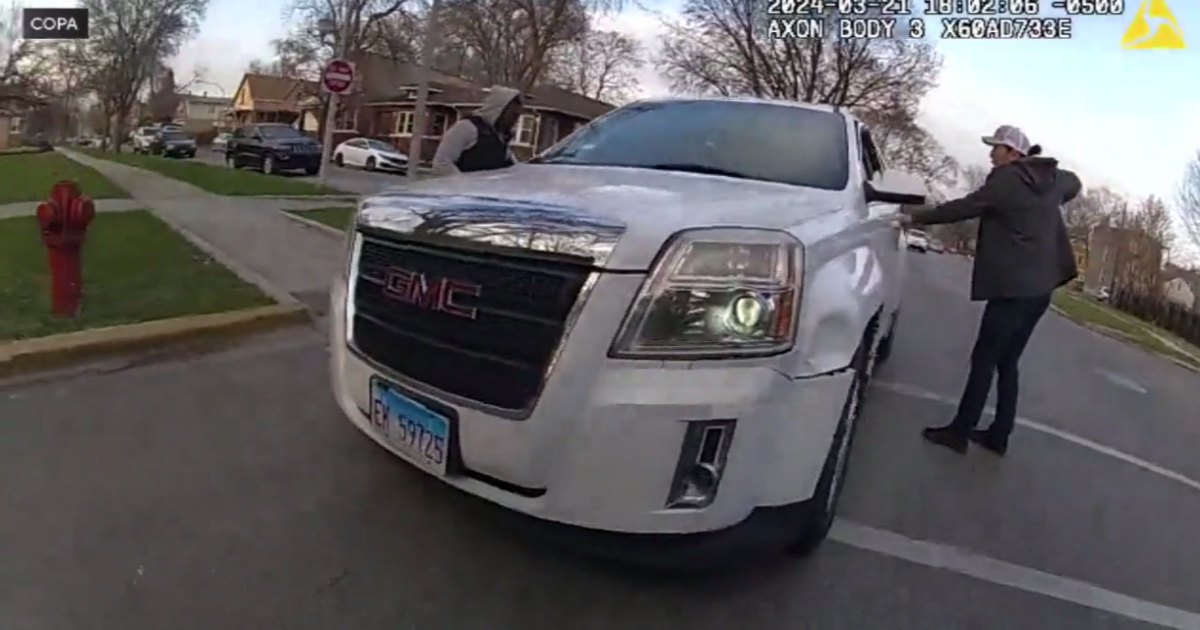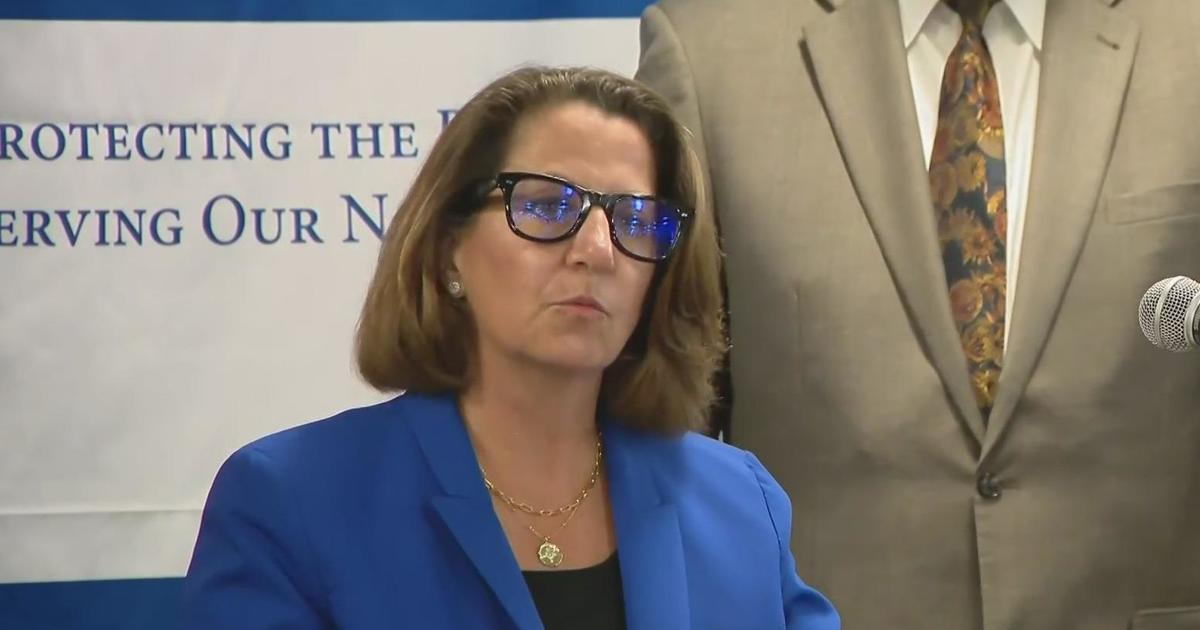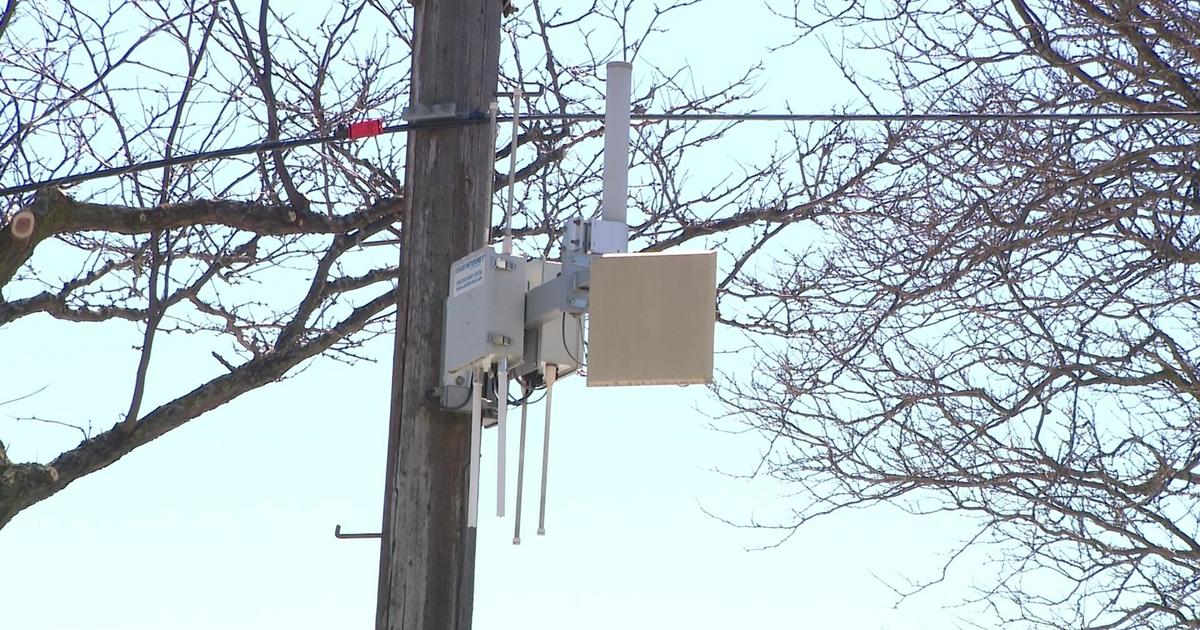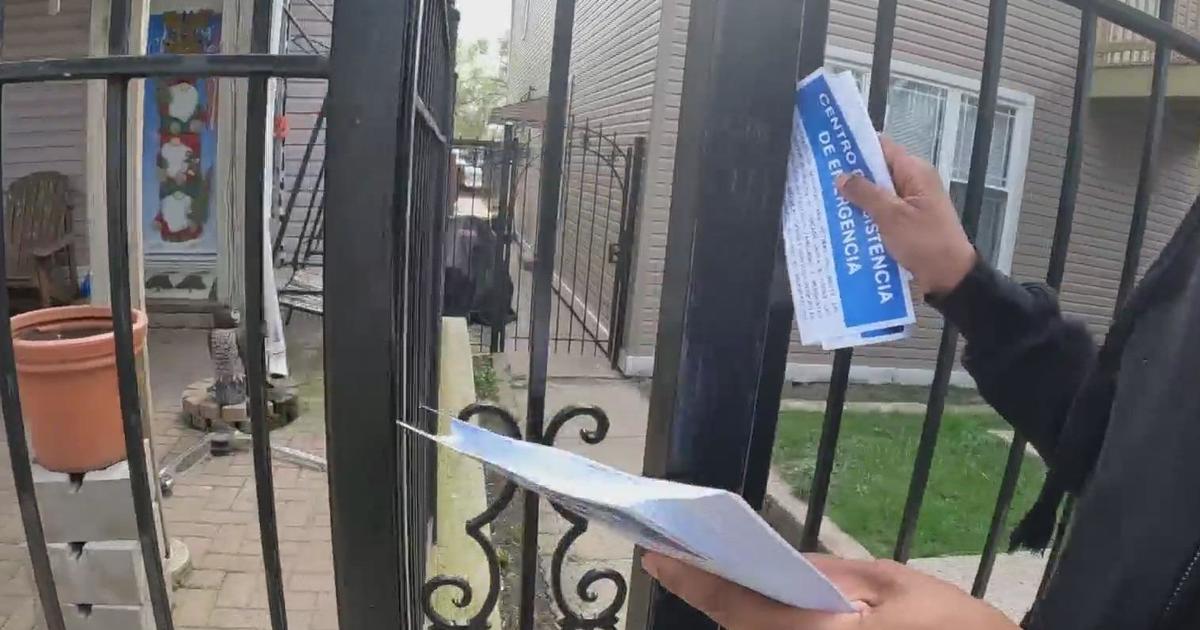Watchdog Report Finds ShotSpotter Alerts Rarely Lead CPD To Evidence Of Actual Gun Crime
by Todd Feurer, Samah Assad, and Suzanne Le Mignot
CHICAGO (CBS) -- A damning report from the city's top watchdog raises new questions about the Chicago Police Department's reliance on ShotSpotter gunshot detection technology, finding ShotSpotter alerts rarely lead officers to evidence of an actual gun crime.
"CPD responses to ShotSpotter alerts rarely produce evidence of a gun-related crime, rarely give rise
to investigatory stops, and even less frequently lead to the recovery of gun crime-related evidence during an investigatory stop," a report from the Chicago Inspector General's office found.
The CBS 2 Investigators have dug into CPD's contract with ShotSpotter, and looked into accusations the technology doesn't work as advertised, raising questions about whether the system is worth the $33 million price.
The Inspector General's office analyzed data on ShotSpotter alert incidents between Jan. 1, 2020, and May 31, 2021. Their analysis found that of 50,176 alerts it reviewed, only 9.1% turned up evidence of a gun-related crime.
The acoustic gunshot detection system relies on hundreds of sensors placed on more than 117 square miles of city streets. Sounds detected by those sensors are analyzed by ShotSpotter acoustic experts and analysts at Chicago Police strategic decision support centers before officers are dispatched to respond to alerts of gunfire.
"A large percentage of ShotSpotter alerts cannot be connected to any verifiable shooting incident," the report states.
[scribd id=521506382 key=key-ddCNZmHrjFeIU1he3RVF mode=scroll]
The use of ShotSpotter in Chicago has been controversial. The MacArthur Justice Center found the technology is mostly being used in Black and Latino communities. The American Civil Liberties Union also raised concerns. While activists called for the city's $33 million contract to be cancelled, the CBS 2 Investigators learned, the city quietly extended it, for two more years, without public input.
"If in fact, there is a benefit that the department sees in the continued investment in this technology, they should demonstrate that, so that a meaningful cost benefit assessment can be done," said Deborah WItzburg, deputy inspector general for public safety.
The inspector general's report also raised questions about Chicago Police Department record-keeping in connection to ShotSpotter, suggesting the low percentage of alerts can be tied to actual gun crimes might be attributable to missing or non-matched records of investigatory stops that were the direct result of ShotSpotter alerts.
If that is the case, according to the report, "CPD's record-keeping practices are obstructing a meaningful analysis of the effectiveness of the technology."
"The CPD data examined by OIG does not support a conclusion that ShotSpotter is an effective tool in developing evidence of gun-related crime," the inspector general's office said in a news release.
Meantime, the inspector general's office also found that the department's use of the technology has changed the way officers interact with people in communities with frequent ShotSpotter alerts. The report found some officers are basing a decision to make a stop or pat someone down based upon how often ShotSpotter alerts happen in that area.
"At least some officers, at least some of the time, are relying on ShotSpotter results in the aggregate to provide an additional rationale to initiate stop or to conduct a pat down once a stop has been initiated," the report states.
The report makes no specific recommendations regarding the city's ShotSpotter contract. Rather, the inspector general's office said the goal of its analysis is to provide the city's elected leaders and the general public with accurate information on the use of the technology.
The findings call into question the Chicago Police Department's decision to quietly extend its contract with ShotSpotter. The CBS 2 Investigators first reported the contract, which originally was set to expire last Thursday, was extended last December for an additional two years, with no public input or notice.
"Our study of ShotSpotter data is not about technological accuracy, it's about operational value," said Deputy Inspector General for Public Safety Deborah Witzburg. "If the Department is to continue to invest in technology which sends CPD members into potentially dangerous situations with little information––and about which there are important community concerns–– it should be able to demonstrate the benefit of its use in combatting violent crime. The data we analyzed plainly doesn't do that. Meanwhile, the very presence of this technology is changing the way CPD members interact with members of Chicago's communities. We hope that this analysis will equip stakeholders to make well-informed decisions about the ongoing use of ShotSpotter technology."
The report also notes that better data on the true outcomes from ShotSpotter alerts would help support City Hall's assessments of whether to further extend its contract with ShotSpotter.
The inspector general's findings are consistent with a recent study by the MacArthur Justice Center at Northwestern University, which also found nine out of 10 times, noises detected by ShotSpotter sensors did not lead to any evidence of an actual crime.
Jonathan Manes, an attorney with the MacArthur Justice Center, led a team of researchers who analyzed OEMC ShotSpotter data and found that well over 85% of ShotSpotter-initiated police deployments in Chicago turn up no evidence of any reportable incident or crime—let alone gun crime.
"So the police are going into that situation expecting to find somebody who is armed and has just fired a gun," Manes said earlier this year, "and if nine times out of 10, they end up finding nothing, that creates a pretty dangerous situation for anybody who happens to be in the vicinity."
Manes also notes that the majority of ShotSpotter cameras are installed in neighborhoods with largely Black and Latinx populations.
"It exacerbates the sort of racialized, aggressive patterns of policing," Manes said.
Manes said the MacArthur Justice Center's research brings into question whether ShotSpotter technology is worth the city's multi-million dollar investment.
"I think it's hard to justify spending $33 million on a tool that sends police hunting for nonexistent gunfire almost nine times out of 10," he said.
Chicago police and ShotSpotter both said the technology is an important part of CPD's goal of reducing gun violence.
In a statement, a spokesperson for ShotSpotter insisted their technology is accurate:
"It is important to point out that the Chicago Police Department continually describes ShotSpotter as an important part of their operations. The OIG report does not negatively reflect on ShotSpotter's accuracy which has been independently audited at 97 percent based on feedback from more than 120 customers. Nor does the OIG propose that ShotSpotter alerts are not indicative of actual gunfire whether or not physical evidence is recovered. We would defer to the Chicago Police Department to respond to the value the department gets from being able to precisely respond to criminal incidents of gunfire. We work very closely with our agency customers to ensure they get maximum value out of our service."
The Chicago Police Department did not respond directly to CBS 2's questions about the inspector general's findings, including whether the department will use the findings to re-examine how it uses ShotSpotter technology as a crime prevention tool, whether it will change the way it tracks information on the efficacy of ShotSpotter, and if the department will revisit its extension of the ShotSpotter contract.
Instead, a CPD spokesman provided a nearly identical statement the department has provided in the past in regard to the ShotSpotter contract, defending the use of the technology as a "crucial" tool.
"ShotSpotter has detected hundreds of shootings that would have otherwise gone unreported," CPD spokesman Tom Ahern said, despite the findings that the vast majority of ShotSpotter alerts did not lead to evidence of a shooting.



